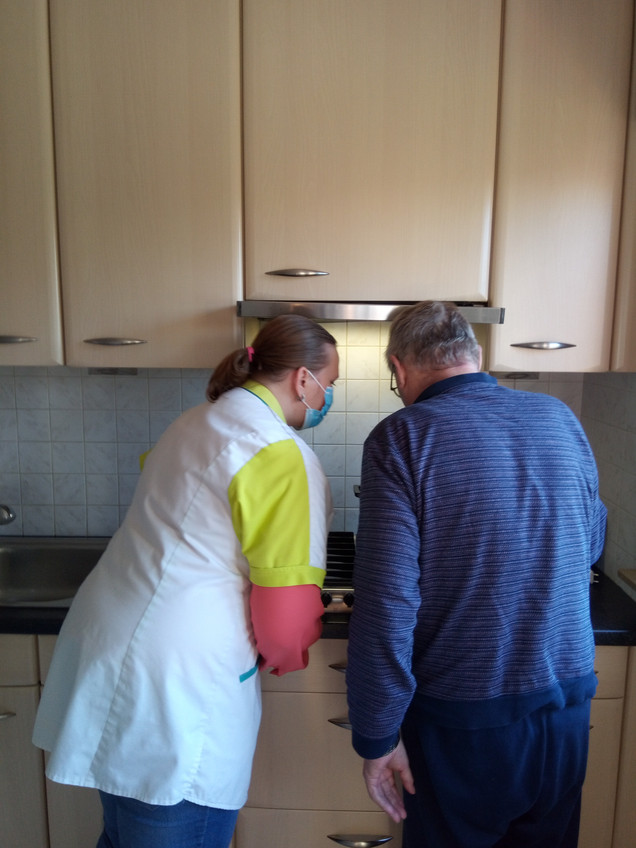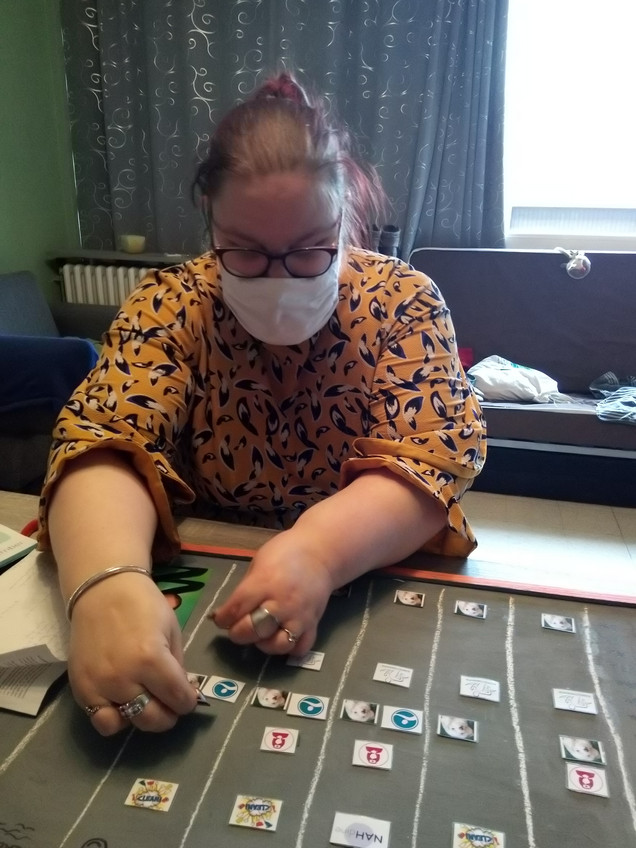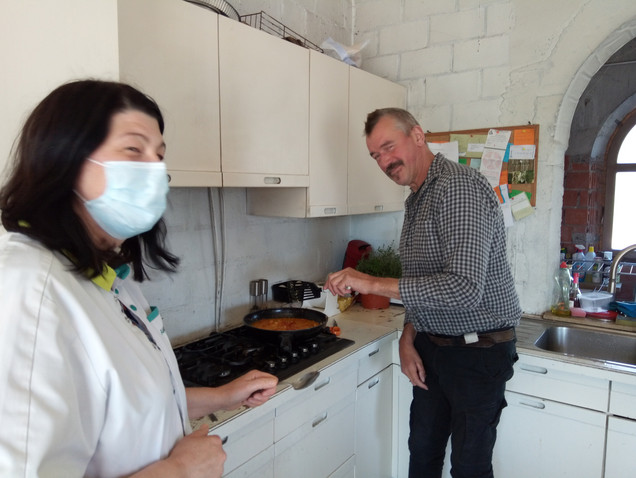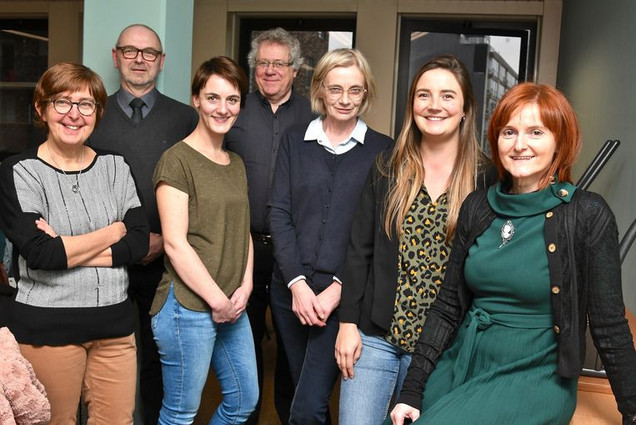NAHDINE
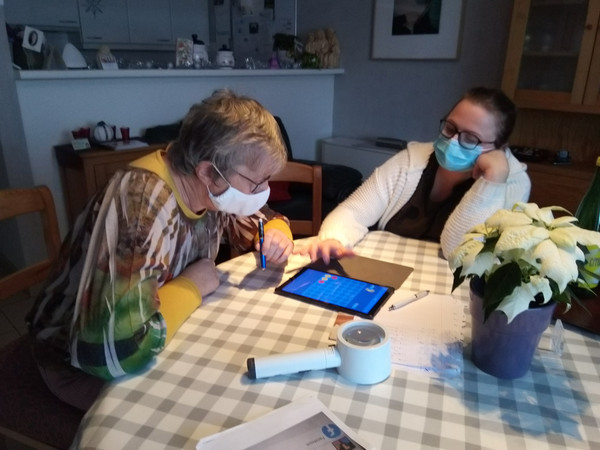
Name of practice: NAHDINE
Organisation: Dominiek Savio vzw
Country: Gits, Belgium
Year of initiation: 2020
Description of organization: Dominiek Savio provides care and education for people with a (neuromotor) disability with the aim of ensuring persons with a disability can lead a full and qualitative life. Dominiek Savio offer care and support in Gits and in the environment of the client (at home, at school, when practicing a hobby and more). Dominiek Savio offers a diverse range of activities including: assistance, support, care, therapy, education addressed to children, young adults, and adults. The organisation currently reaches approximately 2200 people in the province of West-Flanders (Belgium).
Funding: The programme is funded by the King Baudouin Foundation and Dr. Daniël De Coninck Fund
Link to UNCRPD: Article 19 – Living independently and being included in the community
Description of practice:
Dominiek Savio’s project aims to improve the quality of life and participation of people with acquired brain injuries living at home through an innovative collaboration between the patient, the caregiver, carer, and an occupational therapist. In many cases, the patient living at home wishes to resume their favourite activities and hobbies, but faces obstacles given their limited abilities because of their injury. Through a collaborative approach including all parties, the project aims to investigate:
- Which activities the patient wants to perform again.
- What their capabilities are.
- How they can be trained to be able to perform their chosen activity once more.
- How a strong cooperation can be established between the caregiver and the carer.
Problem Targeted:
Statistics show that within Flanders, there are approximately 50,000 new patients annually with an acquired brain injury, out of which 15,000 develop considerable disabilities because of the injury. These at-home patients often feel restricted by their own self, resulting in a lack of motivation, lowered self-esteem, and increased fatigue. Additionally, caregivers often do not have the expertise and training necessary to better integrate the client in daily activities. The goal is therefore to set realistic goals for the patient which will ultimately help them feel more competent in taking back control of their life.
Solution Offered:
The service operates as a collaboration between Dominiek Savio and Familiehulp, an organisation providing support and care at home. Dominiek Savio trains carers from Familiehulp to conduct an Occupational Self-Assessment (OSA) which maps the expectations of the client. An occupational therapist is then involved to map the strengths and weaknesses of the client using the Assessment of Motor and Process Skills instrument. Based upon the test results, a training programme over the course of 20 weeks is developed, in which the patient re-learns the self-chosen activity. These sessions are carried out by an occupational therapist and carer.
Impact generated by the practice:
In the medium/long term, clients will require less specialised care and enjoy a better quality of life. The programme currently reaches 40 patients, all have improved support allowing them to live longer at home. Carers are now better supported and trained to communicate with patients, acquiring new skills on how to better evaluate the needs of the client.
The practice also provides opportunities for organisations to get to know each other. The project builds a special collaboration between ‘first line’ care (regular service – directly accessible) and ‘second line’ care (specialised in working with people with a disability – not directly accessible). This unique collaboration between the ‘first line’ and the ‘second line’ is relevant in the whole of Flanders, but also outside of the region/ country. Disability-specific knowledge from the point of view of an occupational therapist can enrich family care organisations all over the world and enhance the participation of people with an acquired brain injury in society.
Sustainability of Practice:
The project is currently in its trial period in its experimentation with new instruments and new methodologies. Following the completion of the trial, the organisation will evaluate the added value brought on by the collaboration and the project itself. If considered successful, this methodology and knowledge acquired can be shared with other organisations dealing with family care and other organisations working with persons with disabilities.
Currently, there is no fee for clients, however, in the future, clients and caregivers can pay for this service with their own resources or through financial intervention from the government.
Contact Information: Lisa Messely, Staff member on Research & Innovation: lisa.messely@gidts.be
Additional Links:
- https://www.gidts.be/onderzoek-innovatie/projecten/nahdine
- https://zorg.dominiek-savio.be/nieuws/dominiek-savio-lanceert-nahdine-samen-met-familiehulp
- https://zorg.dominiek-savio.be/sites/default/files/upload_websites/zorg.dominiek-savio.be/NIEUWS/2020/20200204_DS_ProjectNAHdine-3-luik.pdf
- https://www.hln.be/roeselare/familiehulp-en-dominiek-savio-willen-mensen-met-niet-aangeboren-hersenletsel-zelfstandiger-laten-wonen~aa3dac07/
